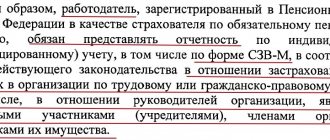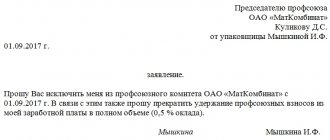The creation of an enterprise is the most important condition for conducting business activities. For any form of business, it is important to choose a management team that will resolve all the main issues in the chosen form of ownership, be it an LLC, OJSC, ODO or an educational institution, where the main affairs of the company or institution will be handled by the founder. These can be legal entities or individuals and foreign citizens. Each composition has its own procedure for registering an enterprise and specifics regarding rights and obligations.
Official permission of the legislation of the Russian Federation
List of persons entitled to be managers:
- individuals who are capable citizens of the Russian Federation and have reached the age of majority;
- not residents of the Russian Federation;
- Russian and foreign legal entities.
The registration procedure for each set of founders has its own nuances:
- if the founder is a legal entity, then from the beginning of its activities it is necessary to notify the tax office by filling out the appropriate application;
- foreign citizens must have in their hands all the documents that indicate permission to stay and work on the territory of the Russian Federation. This should include a visa, a certificate from the migration department, identity documents translated into Russian and notarized.
Change of founder of a legal entity
Changing the founder of a legal entity is not a completely correct concept, since only the founders of the enterprise at the time of its formation can be such.
In a situation where one of them leaves the membership, a change of participant occurs after the alienation of a share of the enterprise’s capital or the entry of a new member into the company. This event must be registered in the Unified State Register of Legal Entities. Constituent documents also change regarding the composition and amount of capital.
The situation is somewhat different when there is a change of the only founder not specified in the charter. Then it is not necessary to change the constituent documents. After registering the share of a new participant in the Unified State Register of Legal Entities, he can make changes to the charter. And also leave the document unchanged, since it suits him. The procedure for changing the composition of a legal entity when one of the founders leaves and a new participant joins is as follows:
- The person leaving writes a statement to the company about his resignation. The company gives him a share of capital or it is sold, ceded to other participants, third parties.
- The authorized capital is recalculated and distributed among the remaining participants.
- Changes in composition and capital are recorded.
- A new member entering the society writes an application for membership, indicating what share he is applying for and what contribution he is making to the capital.
- The authorized capital increases due to the share of the new participant.
- All changes are recorded.
The founders of an LLC are the individuals and companies that organized the company.
Organizational matters
The agreement or decision on the establishment contains information about the period for payment of the share in the authorized capital, since the founder is a person financially dependent on his business and bears full responsibility for its development and the risks incurred. The share is paid within 12 months from the beginning of the official signing of documents on state registration.
The following fines may be applied to participants who are dishonest or violate the company’s charter:
- failure to fully contribute the amount of the share of the authorized capital leads to the transfer of the amount to the share of the entire company;
- penalties, if any, in the terms of the contract;
- voting rights according to the amount contributed to the company's capital.
What is his responsibility?
Participants are not fully liable for all obligations of the Limited Liability Company. They bear the risk of losses associated with the activities of the company in the amount of shares owned by each of them.
In practice, this means that even in the event of the most crushing financial failure, the Founder of the Company risks only his initially invested property.
It is still possible to involve the Participant in paying off the company’s debts - through the mechanisms of subsidiary liability.
Vicarious liability is based on the fact that the activities of a legal entity. person is controlled and managed, one way or another, by an individual. Accordingly, if it can be proven that a particular person had a decisive influence on the decisions that led to bankruptcy, that person must bear financial responsibility for the consequences.
https://youtu.be/YSzXXS97mao
The norm has been in force since 2009 (amendments to the Law “On Insolvency (Bankruptcy)”) and expands the opportunities for creditors. Debt collection can be carried out at the expense of the personal property of the founders, directors, chief accountants, etc.
However, in practice, a difficult stumbling block for the application of subsidiary liability to overcome is proof of the significant influence of a specific individual, the beneficiary, on making erroneous management decisions, that is, the decisive role in the business failure of a legal entity.
Number of founders in a company or institution
In any field, the founders of institutions are an entire organization or a separate group of individuals who are the organizers of a specific type of activity. These include the following types of institutions:
- bodies of state power and local self-government;
- domestic and foreign organizations;
- public and private funds.
All activities of the listed institutions are controlled by the state executive authorities of the Russian Federation, the government and legislation. In this case, you can immediately understand who the founder is - a person who must report to the state and have certain rights and obligations, since the result in achieving common goals will depend on his activities.
First of all, this will depend on the organizational and legal form of a particular institution. In this regard, a specific legal status and all the resulting operating rules are established. However, there are no uniform requirements, since for each type of institution the founder is an individual or legal entity dealing with issues related to a specific type of activity.
Difference between participant and founder
The correct differentiation of terms not only indicates the legal literacy of persons who use them in practice, but also determines the correctness of the preparation of company documents. The founders make decisions at the stage of creating the organization, while its participants gather at a general meeting to resolve a large number of issues that are on the agenda of the operating company.
Another important difference between participants and founders will be that participants can change, but founders cannot, since after registering an organization, the admission of new founders to the company is impossible (only the admission of participants is possible).
We invite you to familiarize yourself with the Salary Certificate from your place of work.
Thus, the terms “member of an LLC” and “founder of an LLC” are often confused, but their meaning is different.
Discussions about whether it is necessary to conclude an employment contract with the sole founder of the organization or whether one should do as officials advise (assign the functions of a manager without concluding any contract to oneself (the person who is the sole founder)) would not be so relevant if not one but.
- labor relations (Article 255 of the Tax Code of the Russian Federation);
- civil law relations (clause 21 of article 255 of the Tax Code of the Russian Federation).
By virtue of paragraph 21 of Art. 270 of the Tax Code of the Russian Federation, when determining the tax base, expenses for any types of remuneration provided to management or employees, in addition to remunerations paid on the basis of employment contracts, are not taken into account. Therefore, even if a civil contract has been concluded with the head of an organization, accounting for the costs of paying him remuneration is associated with tax risks.
According to the Ministry of Finance, the head of an organization, who is its sole founder and member of the organization, cannot calculate and pay wages to himself. Accordingly, he does not have the right to take into account as labor costs the expenses incurred in the form of paying himself wages:
- when determining the object of taxation paid in connection with the application of the simplified tax system (Letter dated 02/19/2015 No. 03-11-06/2/7790);
- when determining the object of taxation of the Unified Agricultural Tax. According to officials, insurance contributions to extra-budgetary funds and personal income tax are also not calculated (Letter No. 03-11-11/52558 dated October 17, 2014).
If the Ministry of Finance insists that the costs of paying wages to the director - the sole founder cannot be taken into account for tax purposes, then the Ministry of Labor of Russia (Letter dated 05.05.2014 N 17-3 / OOG-330) reports that according to the legislation on pension and social insurance the heads of organizations, who are their sole founders, are classified as insured persons under compulsory types of insurance; therefore, for payments made in their favor, insurance premiums must be accrued in the generally established manner, which is only possible if there is an employment contract.
conclusions
From all that has been said, the following conclusions can be drawn:
- even if the sole founder of an organization assumes the powers of its leader and does not lead to the emergence of labor relations, this does not prevent the application of labor legislation to the resulting relations, which follows from Articles 1 and 11 of the Labor Code, but from the point of view of labor legislation (Articles 15 and 20 of the Labor Code ) the manager, who is the only participant in the organization, is recognized as an employee of this organization, enters into labor relations with it and is not included in the list of persons with whom relations are not regulated by the Labor Code of the Russian Federation;
- on the one hand, today we can safely allow a situation where the manager - the only founder - works without an employment contract. After all, inspections of compliance with labor legislation are carried out by Rostrud, and it considers this situation legal. That is, there should be no fines on this side;
- According to the author, Article 273 of the Labor Code does not mean that you cannot conclude an employment contract with yourself, but that Chapter 43 of the Labor Code establishes additional guarantees for a manager, including a hired one. And the owner-manager simply does not need the guarantees that are provided to the hired manager. That is why he was removed from the scope of this chapter of the Labor Code (and only this, and not the entire Labor Code);
- Considering that judicial practice is based on the mandatory nature of an employment contract, it is much safer for an organization to hire a director under an employment contract;
- the position that the founder (the only participant of the organization) cannot conclude an employment contract with himself is untenable for the following reasons:
- It follows from Article 16 of the Labor Code that labor relations can arise without a written contract if the authorized person actually allowed the employee to work;
- To work as a director of an LLC, a citizen must be elected to the position. Such election is formalized by a written decision of the participant. There is no prohibition in the LLC Law on electing oneself as a participant and on signing such a decision by the participant. Consequently, if the participating director has made the necessary decision, he has the right to allow himself to work;
- When signing an employment contract, the participant acts in different statuses: on the one hand, as an ordinary employee; on the other hand, as a representative of the employer (LLC). This is not prohibited by law.
One of the most common options to avoid paying wages is to give the manager a vacation “at his own expense.” But at the same time, it must be borne in mind that the functions of the manager include signing various documents, and signing them while on vacation, although it does not contradict the law (see.
Resolution of the Presidium of the Supreme Arbitration Court of the Russian Federation dated 02/09/1999 No. 6164/98), but transfers every transaction and every document signed in this way into the risk zone. In practice, there are situations when counterparties tried to challenge the legality of transactions under the pretext of signing them by an unauthorized person who was on vacation.
https://youtu.be/ueeIcc9ukDE
As an alternative, you can offer the option of introducing part-time working hours to the director (for example, 0.5 times the rate). In this case, the employment contract establishes a 20-hour work week with days off on Saturday and Sunday and the amount of remuneration amounting to 50% of the regular salary for this position, while the size of the tariff rate (salary) is indicated as part of the information on the conditions of remuneration in full size.
Note: part-time work does not entail for employees any restrictions on the duration of annual basic paid leave, calculation of length of service and other labor rights.
Based:
- Article 270 of the Tax Code (the salary of the participating director is not indicated);
- Article 225 of the Tax Code, according to which the costs of remunerating the director-participant are documented (this is why you need to have a written employment contract) and economically justified (since the salary is provided for in the employment contract),
inclusion of accruals under employment contracts into expenses is possible.
If you are deducted expenses based on the results of an on-site audit, indicate the above arguments in your objections to the tax audit report and refer to the position of the courts in disputes with the FSS.
The article was written and posted on January 2, 2020. Updated: 06/10/2016
ATTENTION!
We invite you to familiarize yourself with how much mat capital is currently
Copying the article without providing a direct link is prohibited. Changes to the article are possible only with the permission of the author.
- The procedure for bringing to disciplinary liability
- Raising the retirement age
- Sample notification of changes in the terms of an employment contract
- Additional agreement to the employment contract: when is it concluded, form, procedure for conclusion
- Incentive payments: premiums, bonuses, additional payments and allowances
- Consent to the processing of personal data
- Effective contract
- Differences between an employment contract and a civil law contract
- Qualification requirements for drivers
- Regulation of labor of minor workers
- Work time
- Irregular working hours
- Overtime work
- Errors in the employment contract
- How to defeat a union
- Internal labor regulations (sample)
- Production calendar for 2020
- Legal calendar for 2020
- Calculation of FSS benefits in 2020 - 2020
- What is the procedure for granting the next annual paid leave? Do I need to write a statement?
- Will my unused vacation from last year expire?
- Maternity leave;
- Child care leave from birth to 1.5 years;
- Child care leave up to 3 years;
- On a new vacation or on a fireproof vacation
- Work and vacation on New Year's holidays
- If vacation and public holidays coincide
- If during maternity leave you learn that your employer is going to cease operations
Organizational and legal forms are created and managed by individuals and legal entities. At first glance, the differences between participants and founders are of a purely formal nature and relate to procedural issues. However, a detailed consideration of the issue allows us to establish a significant difference between the categories, which affects various aspects of the activities of a business entity.
articles
Comparison
Thus, the main differences lie in the very essence of these definitions. A founder is a person who creates an organization from scratch. After that, he retains his status forever, automatically turning into a shareholder, member, participant or shareholder (depending on the legal form). A participant can only be in a limited liability company, and he acquires his right by virtue of acquiring a share in the authorized capital.
The founders can create other organizational and legal forms, including OJSC, CJSC, and ALC. Moreover, information about them must be in the Unified State Register of Legal Entities in its original form. Information about participants may change as shares are alienated, that is, they are sold, donated, etc.
Other features of managers
Control over the activities of any institution by the founder is quite high, since in this case there is significant financial responsibility and the result of the activity as a whole. It all depends on the type and type of the institution itself, which will determine the degree of competence of the manager in a particular issue.
In any case, a founder is a person who does not have a single list of rules and responsibilities for running a certain type of business. The more authority assigned, the higher the degree of responsibility.
Basic rights of founders
The basic rights of founders include the following:
- making decisions on the reorganization of an enterprise, company or institution, as well as their liquidation or changing the type of activity in general;
- termination of a contract with the head of a specific institution according to the rules established by clause 2 of Art. 278 Labor Code of the Russian Federation;
- change of manager in accordance with compliance with the guarantees established by labor legislation.
All these rules and powers that the founder of a company or any other institution has, allow him to competently manage property and monitor the order of business. All rights and obligations are prescribed in the charter of a specific type of institution, which must be observed, especially when controversial situations and disagreements arise.
Persons who found a company appoint a certain circle of founders. Thus, they can competently conduct this or that business with the direct participation of other allies, the composition of which can constantly change. A participant in a business or a specific institution can become a founder only after the official founding of the company or its re-registration. Without the existence of founders, it is very difficult to competently manage this or that type of activity.
The concepts of “participant” and “founder” used in legislation: differentiation of terms
The main laws that regulate the activities of LLCs are:
- Civil Code of the Russian Federation;
- Federal Law “On Limited Liability Companies” dated 02/08/1998 No. 14-FZ.
It is in these laws that the terms in question are used: “participant” and founder.” At the same time, these normative acts do not contain definitions of these concepts, therefore, to differentiate them, it is necessary to analyze the essence of the provisions contained in the Civil Code of the Russian Federation and Federal Law No. 14.
https://youtu.be/MTQFI7WVgSA
In particular, due to the requirements of Art. 11 Federal Law No. 14 A company is created by its founders, or by one founder. This provision also contains the rights of the person establishing the company, in particular:
- make a decision to create a company;
- determine its location and name;
- adopt constituent documents (charter);
- approve the size of the authorized capital;
- other rights.
Have a question? We'll answer by phone! The call is free!
- determining the directions of the company’s activities;
- changing the constituent documents, the size of the authorized capital, the address of the organization’s location;
- appointment of the management team of the company (director, general director, and other persons who can serve as an executive body);
- making a decision to terminate the company’s activities;
- other powers.
From the above provisions of the law containing the rights and powers of participants and founders, we can conclude that at the stage of creating the Company, the term “founders” is used, and in the process of carrying out the company’s activities - “participants”.
Thus, the word “founder” is used from the moment the decision was made to create a company until the moment of its registration, and participant - from the moment the organization is registered until the moment its activities are terminated.
A proper distinction between founders and participants is necessary when drawing up company documents, making decisions, holding meetings and some other cases. Basic legal literacy also requires this.
For example, when deciding whether to hold a meeting of participants or founders, a simple rule is followed: the founders gather only once - for the first meeting, the result of which is the creation of an LLC; in the future, all decisions in society are made by the participants.
In addition, it is important to remember that the number and composition of participants may change (as new ones join, old ones leave). As for the founders, their number is constant, since it is impossible to become a founder of an already created company.
As you can see, there really are differences between the founder and the LLC participant. We hope that reading this article will allow you to accurately draw the line between these concepts, based on the norms of Federal Law No. 14.










